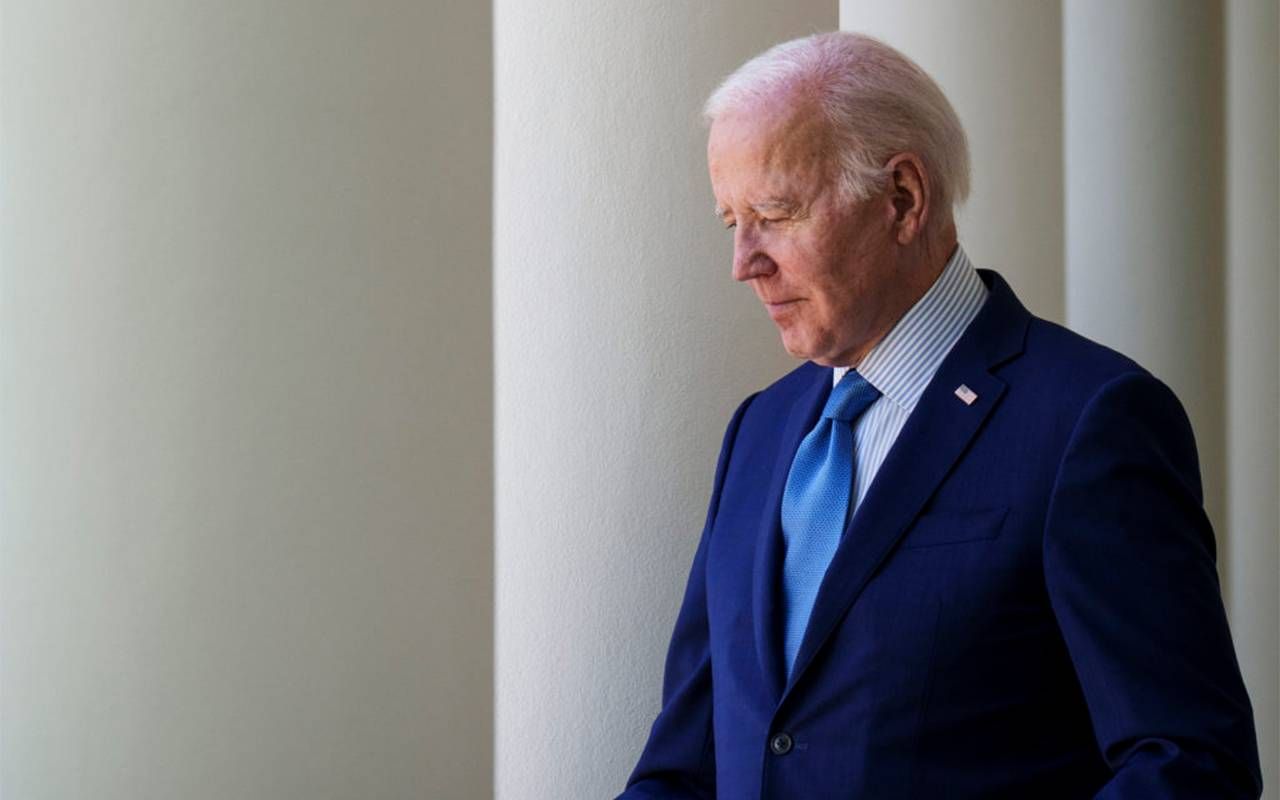We Can't Shut down the Conversation About Biden's Age. That's Fine With Me.
It's raising awareness of ageism and teaching people to distinguish between age and capacity
Yes, I'm weary of the endless talk about the age of presidential candidates. Yes, much of it is ageist. But I'm not sorry it's taking place. Here's why:

It's making far more people aware of ageism than ever before
"Ageism certainly is on everyone's radar these days," a friend remarked last week. No kidding! We have the conversation about Biden's age to thank. No matter who's doing the talking, no matter where they sit on the political spectrum, people are acknowledging the ageism inherent in asking whether someone's "too old" to hold office. That's huge! Because ageism has gone largely unexamined until recently. Because most bias is unconscious. Because change requires awareness.
It's teaching people to distinguish between age and capacity
Another benefit of the conversation about octogenarian officeholders is that it's teaching people to distinguish between age and capacity. Age-related decline is real, but it affects each person in different ways and at different rates. That's why geriatrician Louise Aronson and countless other experts on aging — ten of whom weigh in here — recommend focusing on cognitive and physical health instead of age when evaluating leadership ability.
"Ageism is certainly on everyone's radar these days."
Decoupling age from competence also separates ageism from ableism: prejudice around physical and mental capacity. Lots of younger people are disabled, and the vast majority of older people are not. When we lose sight of that, we reinforce dual stigma.
It's not going away — for legitimate reasons
The ongoing discussion about the age of political candidates isn't stopping anytime soon. Earlier this month it ramped up to a fever pitch when the Department of Justice declined to prosecute President Biden for his handling of classified documents. The special counsel went on to call Biden a "well-meaning, elderly man with a poor memory" who had "diminished faculties in advancing age." Ouch! Biden didn't like it. Neither did the progressive commentariat, which cried foul.
Decoupling age from competence also separates ageism from ableism: prejudice around physical and mental capacity.
Let's get a couple of things straight:
· It's not ageist to call Trump and Biden old. They're old!
· It is ageist to call someone "too old" for a job. Plenty of youngers aren't up to a given task. Plenty of olders are qualified. Age-based assumptions are as harmful and ignorant as racial or gender stereotypes.
· It's ableist to shame people for memory lapses, as special counsel Robert Hur did.
· The conversation shouldn't center age. It should center capacity.
Age and ability are different. That distinction is fundamental. The current discourse conflates the two, making it far harder to get to the heart of the matter: is the person mentally and physically up to the job? That's why questions about candidates' competence are completely legitimate. Voters are entitled to be informed about the health of the people who represent us.
Testing is not the answer. Even doctors have a hard time assessing cognition. No test is neutral. Biden is better at legislating than campaigning. Trump is the reverse. How to evaluate those skills and deficits? How to compare the results?
Let's See Strengths in Action
Team Biden vehemently maintains that the President's strengths as a diplomat more than compensate for his shortcomings as a debater. Let us see those strengths in action. More media appearances. (He's held fewer press conferences and given fewer interviews than any president since Reagan.) More events. (Biden did Super Bowl interviews in 2021 and 2022. This year's game had an estimated 123.4 million viewers.)
Brushing voters' concerns under the rug, or dismissing them as ageist or as partisan, does no one any favors.
The Biden team says this is a strategy. If so, as journalist Ezra Klein points out, it's more of "a strategic adaptation to Biden's perceived limits as a candidate." For better or worse, Biden has to win an election in order to remain head of state. No matter how qualified he may be to hold the job, it's not ok to shut down discussion of whether he can get the job.
A world leader needs to be able to communicate. Voters can forgive a stutter. Silence, not so much. Brushing voters' concerns under the rug, or dismissing them as ageist or as partisan, does no one any favors. It makes it harder to challenge ageism and ableism on legitimate grounds. It's not good for democracy.
If Biden's candidacy fails because people think he's "too old," don't blame age. Blame ageism. Blame ableism. Blame capitalism: a culture in which people are either employed or worthless. Blame an appearance-obsessed culture that values speed over substance and entertainment above all. But don't blame age.

In 2022 the United Nations named Ashton one of the Healthy Aging 50: fifty leaders transforming the world to be a better place to grow older. Read More

